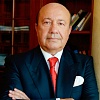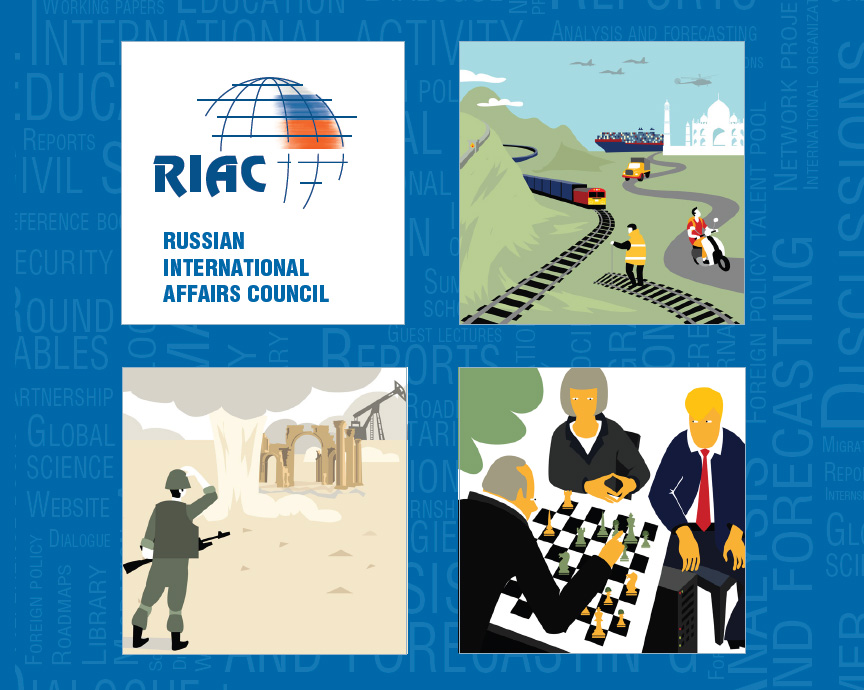Two centuries ago, the great German philosopher Georg Wilhelm Friedrich Hegel formulated his famous axiom that “Whatever is reasonable is true, and whatever is true is reasonable.“ His compatriot Johann Wolfgang von Goethe (another great German) disagreed, offering his own now equally famous adage: “Well understood that the sum of our existence divided by reason never comes out exactly and that there is always a wondrous remainder.” Reflecting on the last 30 years of Europe–Russia relations, one cannot but conclude that they have developed more along the lines of Goethe’s aphorism than Hegel’s. These relations have frequently gone beyond sober pragmatism; to be sure, they have often been decidedly tense and unequal. The two sides were overwhelmed with positive and negative emotions, old prejudices and new expectations. This resulted in any progress in the bilateral cooperation between Russia and Europe inevitably being followed by almost instantaneous setbacks, and unrealizable hopes being always replaced by bitter disappointments.
The European Union is experiencing one of the most difficult periods in its history. Brexit, clarification of relations with rebellious Poland, Hungary and the Czech Republic (possibly Austria and even Italy), the fight against separatism and internal reforms – all this will take time to resolve, and it will not go smoothly. Only time will tell exactly what shape Europe will emerge from this upheaval. Let’s hope it will come out stronger. It will, in any case, be a different Europe, Russia will have to talk with.
Russia too has changed. Today, the country demonstrates greater self-confidence and is eager to reclaim its status as a leader in global affairs. On the other hand, Russia is facing the large-scale task of modernizing its economy and technical base, rebuilding the social infrastructure and searching for a new place in the international division of labour. Europe’s place on Russia’s agenda will depend not only on Moscow, but also on Brussels and other European capitals.
The new stage of Russia–Europe relations requires new and fresh approaches if the sides are truly interested in imbuing them with real content. Emotions need to give way to logic. Romantic illusions need to be replaced by pragmatic considerations. And ideological constructions need to be ousted in favour of a clear understanding of the long-term interests of both sides. The relations between Russia and Europe will prove to be more productive for both sides if we build them according to Hegel’s axiom, and not Goethe’s.
Two centuries ago, the great German philosopher Georg Wilhelm Friedrich Hegel formulated his famous axiom that “Whatever is reasonable is true, and whatever is true is reasonable.“ His compatriot Johann Wolfgang von Goethe (another great German) disagreed, offering his own now equally famous adage: “Well understood that the sum of our existence divided by reason never comes out exactly and that there is always a wondrous remainder.” Reflecting on the last 30 years of Europe–Russia relations, one cannot but conclude that they have developed more along the lines of Goethe’s aphorism than Hegel’s. These relations have frequently gone beyond sober pragmatism; to be sure, they have often been decidedly tense and unequal. The two sides were overwhelmed with positive and negative emotions, old prejudices and new expectations. This resulted in any progress in the bilateral cooperation between Russia and Europe inevitably being followed by almost instantaneous setbacks, and unrealizable hopes being always replaced by bitter disappointments.
For the better part of these three decades, I have happened to be both an observer and a direct participant in many of these attempts to build a common, safe and prospering Europe that would include Russia. Looking back at this long journey, I could call this period a “romantic” ride. There have been romantics on both sides of the relationship – people who truly believed in the possibility of creating, in the shortest time, a common and indivisible pan-European space in terms of economics, security, science, education, culture and civil society.
In my opinion, it would be unfair to accuse the politicians, diplomats and public figures of that time of being naive or idealist. After all, back then, in the late 1980s–early 1990s, the continent of Europe had only just embarked upon the path towards fundamental transformation, and the dividing lines between the possible and the impossible, the real and the unreal, was nothing but a dotted line. What is more, we must admit that in a relatively short space of time, we have managed to agree on and adopt a number of documents that lay firm foundations for cooperation in the political, economic, humanitarian and even military spheres.
Political relations reached their peak, in my opinion, in 2003, when Russia, France and Germany spoke out together at the United Nations Security Council against the U.S. intervention in Iraq. It was an unprecedented step in postwar Europe, one which many at the time thought had paved the way for a fundamentally new alignment of powers both in Europe, and in the world in general.
At the beginning of the 2010s, trade between Russia and the European Union exceeded US 400 billion per year, EU countries accounted for more than 60 per cent of all foreign investments into Russia, with the cumulative volume of European investments into the Russian economy reaching US 300 billion. And Russia’s ability to pull itself out of the deep economic crisis of the 1990s with relative speed was thanks in large part to the dynamically developing trade and economic cooperation with Europe. Humanitarian ties grew dramatically in the form of scientific, cultural and educational exchanges and tourism. Before long, more Schengen visas were issued to citizens of the Russian Federation than of any other country, and by the early 2000s, the task of the gradual introduction of a visa-free regime had been formulated.
Yet Russia–Europe relations were still “romantic.” The roadmaps that were supposed to have developed into cooperation in several areas never turned into full-fledged detailed documents. The Russia–Europe summits held twice a year gradually became pompous and insignificant events. And a full-fledged security dialogue was never developed because of NATO’s reluctance to accept the new realities in Europe and the world. The American viewpoint on the need to expand NATO and turn it into a military power so that it could carry out its plans to establish a unipolar world in the Western mould under the leadership of the United State prevailed within the Alliance.
Since the turn of the century, unresolved problems, mutual frustration, reticence, ambiguity, and differences of opinion on fundamental for both parties issues have been accumulating. For some time, the growing difficulties were ignored and “swept under the carpet,” but the blister was bound to burst sooner or later. And this is precisely what happened with the Ukrainian crisis in 2013–2014. The events in Ukraine may not have been the reason for the escalation of the conflict between Russia and its neighbours to the West, but they certainly acted as a powerful catalyst.
It is worth noting that post-2014 relations between Russia and Europe can still be referred to as “romantic,” because emotions were still at the forefront, rather than a cool-minded stocktaking of mutual interests, opportunities and limitations. But this was no longer the “romance” filled with positive content. Both sides have tried, and partly successfully, to convince themselves that they would manage perfectly fine without each other, that the other side was suffering from the break-up more and that they would soon come crawling back to them, either to Moscow or to Brussels.
Today, the costs of this kind of “romance” should be evident to everyone. It is pointless to talk about which side is suffering most from the break-up. Far more important is that there are only losers in this situation, and the losses are becoming greater with each passing year. The rest of the world is not hanging around for Russia and Europe to sort out their issues. The world is moving forward, and it will be increasingly difficult for Moscow and Brussels to keep pace moving forward. If this is indeed the case, one can assume that Russia and Europe are facing a new stage in their relations, which will involve less romanticism and more pragmatism.
It does not take a genius to predict that the dialogue on building relations at this new stage will be difficult. There are both objective and subjective reasons for this.
Pan-European organizations, just like pan-European documents, with their complicated procedures for coordinating and making decisions, as well as their cumbersome bureaucracy and inability to react to events in a speedy manner, are gradually becoming a thing of the past. The existing institutions are likely to remain, although it will be almost impossible to reform and breathe new life into them given current conditions.
The European Union is experiencing one of the most difficult periods in its history. Brexit, clarification of relations with rebellious Poland, Hungary and the Czech Republic (possibly Austria and even Italy), the fight against separatism and internal reforms – all this will take time to resolve, and it will not go smoothly. Only time will tell exactly what shape Europe will emerge from this upheaval. Let’s hope it will come out stronger. It will, in any case, be a different Europe, Russia will have to talk with.
Russia too has changed. Today, the country demonstrates greater self-confidence and is eager to reclaim its status as a leader in global affairs. On the other hand, Russia is facing the large-scale task of modernizing its economy and technical base, rebuilding the social infrastructure and searching for a new place in the international division of labour. Europe’s place on Russia’s agenda will depend not only on Moscow, but also on Brussels and other European capitals.
What is more, Russia and the European Union will have to tackle these tasks within the context of the ongoing globalization and the challenges that come with it – from the growing migrant flow to the formation of global terrorist networks. Russia’s and Europe’s position is objectively complicated by the fact that the United States, whose participation in the resolution of many global issues is, for all intents and purposes, absolutely essential, is being drawn into a deep domestic political crisis before our very eyes. As a result, unfortunately, we cannot count on a consistent, balanced and long-term foreign policy from the United States in the near future.
Against this background, Moscow, Brussels and other European capitals cannot afford to sit idly around, waiting for more favourable conditions to appear. We need to push the play button on this drawn-out pause and resume the dialogue. And it should be a multi-tiered dialogue that deals with current issues, as well as the long-term strategic aspects of Russia-Europe relations. Several negotiation tracks need to be launched allowing us to move forward on a broad range of issues, with greater urgency being attached to certain issues than to others. The parties to such discussions could also vary: EU delegation for certain questions; separate groups of countries (such as the Normandy Four on the Ukrainian crisis) for others. In any case, the negotiation formats of the past (two summits per year, emergency ministerial meetings, etc.) have run their course.
Not only do we need new formats for holding negotiations, we also need a new type of document that regulated relations. We should not count on the creation of a new Grand Comprehensive Agreement to replace the 1994 Agreement on Partnership and Cooperation between Russia and the European Union. It is unlikely that the two sides will be able to restructure relations in four common areas in the form of a document or treaty. Given the current climate, it would be all but impossible to draw up the necessary documents, much less have them ratified by all EU member states. This means that we should focus on other, more “mobile” documents that might better serve the interests of cooperation at this particular moment in time.
At the same time, everything that currently works in the bilateral relations should continue to do so, and there is no need to artificially destroy or rebuild anything here. We should only touch that which has become irreversibly obsolete and prevents us from moving forward.
When it comes to actions, the most difficult and at the same time most urgent task is to find common approaches to settling the Ukrainian crisis. With the obvious exception of Ukraine itself, Russia and Europe bear the greatest costs from the on-going conflict that is raging at the heart of the continent. And it is this conflict that is preventing us from restoring relations in other areas. It is clear, however, that the dialogue on the Ukrainian issue should be held in the context of agreeing the general principles of European security moving forward.
I predict that there will be objections, as the fundamental issues of European security cannot be discussed without the United States and outside the NATO context. To be sure, any attempt to exclude the United States from the conversation would be both naive and counterproductive. However, neither Russia nor Europe can afford to wait for the United States to sort out its domestic political crisis and be ready for serious discussion. Neither the United States nor NATO has a monopoly on the dialogue surrounding European security – the issues are too diverse, and too important, to be passed on to the discretion of a third country or organization.
These and other proposals only demonstrate that this new stage of Russia–Europe relations requires new and fresh approaches if the sides are truly interested in imbuing them with real content. Emotions need to give way to logic. Romantic illusions need to be replaced by pragmatic considerations. And ideological constructions need to be ousted in favour of a clear understanding of the long-term interests of both sides. The relations between Russia and Europe will prove to be more productive for both sides if we build them according to Hegel’s axiom, and not Goethe’s.








